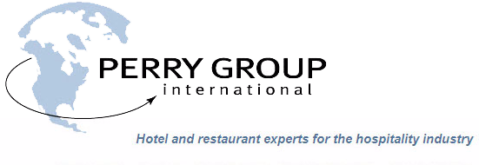Engaging a hotel temporary manager for a successful transition of a hotel property could be an efficient alternative to an “all at once” approach to handling a transitional phase or transfer. This includes situations where the hotel property is undergoing receivership or another form of necessary transition. While many types of transitions can occur at any point in time, transitions typically increase in times of slow or negative economic growth patterns. Thus understanding the aspects of hotel property management under temporary conditions is essential to the proper consideration of the employment of this solution, regardless of any specific reasons for the transition taking place.
Bridge To The Future
The hospitality and lodging industries represent an economic interest more than $162 Billion dollars, according to the American Hotel and Lodging Association. This fact alone should represent both an opportunity and concern in the areas of transitions and with situations occurring due to normal attrition. In most circumstances, a hotel temporary manager could represent a bridge to the future for the property. Be it a transition from receivership, a transition from one owner to the next or in situations where a new management team is required.
Potential Consequences Of A Management Deficit
As alluded to, the consequences of a management deficit can occur, regardless of the specific circumstances that initiated the deficit. This management deficit period will potentially cause increased pressures on both the local staff and the property management authority. These pressures, locally induced or company initiated, could in many situations, result in a devaluation of the property. Only by the introduction of a hotel temporary management teams, could the results of this devaluation be avoided. However, there could be pitfalls associated with the property management authority implementing temporary management, with inside staff. A December 2003 article in Hospitality Net, used the analogy of entering a freeway to describe these situations. “A successful transition is like merging onto a freeway; you can do it smoothly and easily, or you can jet into traffic without looking, and the results can be immediate, disastrous, and cause a lasting effect.” While this analogy could be applied to all transitions, this could equally sum up the situation of the authority that has a vested interest in either increasing or decreasing the valuation of a property. One possible example is a hotel property that is under the prospect of a potential sale. Thus engaging a hotel temporary manager during this type of transition will potentially reduce a question of impropriety
Increasing Likelihood Of A Potential Management Deficit
Removing the most unlikely scenarios from the equation of possibilities, the likelihood of a potential management deficit occurring is significant. In a 2014 Whitepaper at Hospitality Management.net, it was noted that forty six percent of leadership positions have a positive rate of return for failures, with the overall rate of leadership concerns hovering near fifty percent. When the aforementioned devaluation situation occurs, it can be challenging to return to the proper state without adding a potentially significant increase in investment. Introduction of a temporary manager potentially reduces the chance of requiring said investment. In addition to avoiding the other issues associated with a management deficit.
Given the potential occurrence of a management deficit in the hotel and lodging industry and the issues and concerns all types of transitions can represent, the efficient solution is to engage a hotel temporary manager solution. This corrective action could forestall or prevent the problems outlined above and allow the affected company the means to turn a concern into an opportunity for the future.





